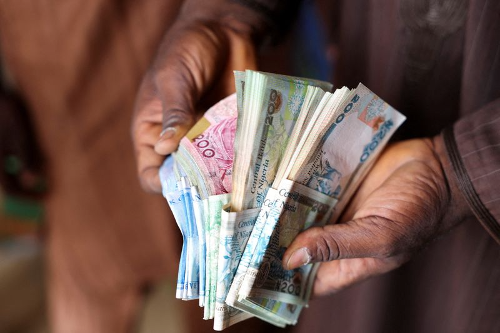Nigeria’s latest devaluation, currency reforms give investors hope

TLDR
- Nigeria's currency devaluation and revised forex regulations suggest a move towards allowing the naira to float freely.
- Challenges such as a backlog of dollar orders and low liquidity may hinder reform progress.
- Forex shortages have increased demand, leading to transactions through unofficial channels.
Nigeria's recent currency devaluation coupled with revised forex regulations indicates a potential shift toward allowing the naira to float freely. However, challenges such as a significant backlog of dollar orders and low liquidity could impede reform progress, according to investors and analysts cited by Reuters.
The official exchange rate plummeted to N1,531 per dollar from 900, closer to black market rates, following changes in the market regulator's rate calculation method. Forex shortages have exacerbated demand, driving transactions towards unofficial channels.
In addition, the Central Bank of Nigeria's recent measures, including limits on bank-held foreign currencies and relaxed rules for money transfer operators, aim to adapt to prevailing market dynamics.
Key Takeaways
Nigeria is grappling with an array of economic challenges, including record government debt, high unemployment rates, and persistent power shortages, all of which have hindered substantial economic expansion. Declining oil output, coupled with widespread insecurity, further compounds the nation's woes, with significant portions of rural areas remaining beyond government jurisdiction. The country's history of currency market distortions, characterized by stringent controls, has deterred foreign investors, undermining its appeal as Africa's largest economy with a population of 200 million. Convincing investors of a genuine commitment to reform and liberalize the currency market will be essential to regain foreign capital and stimulate economic growth.

Next Frontier
Stay up to date on major news and events in African markets. Delivered weekly.
Pulse54
UDeep-dives into what’s old and new in Africa’s investment landscape. Delivered twice monthly.
Events
Sign up to stay informed about our regular webinars, product launches, and exhibitions.




